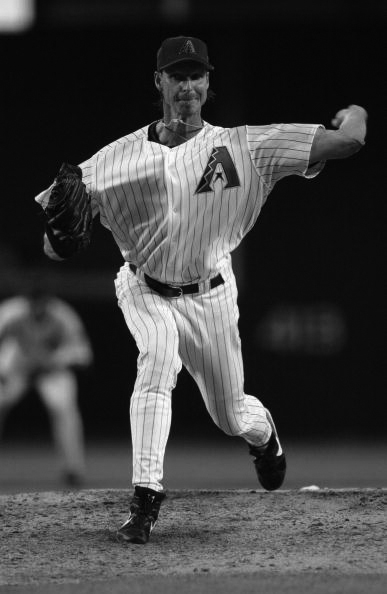Height and size do matter in baseball as they can impact a player’s ability to perform certain actions effectively on the field. In general, taller players tend to have a longer reach, which can be advantageous for fielding and pitching.
Additionally, larger players often have more power and can hit the ball farther. However, it is important to note that baseball is a sport where skill, technique, and strategy play crucial roles, and players of all heights and sizes can still excel with the right training and practice.
Many successful baseball players have proven that factors like agility, speed, coordination, and baseball IQ are equally important, if not more so, in determining success on the field. Ultimately, a combination of physical attributes, skills, and mental acuity contributes to a player’s overall performance in baseball.

Credit: sabr.org
The Importance Of Height And Size In Baseball
Height and size play a significant role in baseball, influencing performance in various aspects such as hitting, pitching, and fielding. Players with greater height and size often have an advantage, utilizing their strength and reach to excel in the game.
Ultimately, it can impact the overall success and effectiveness of a baseball player.
When it comes to the game of baseball, many factors contribute to a player’s success on the field. While skill, technique, and strategy are undoubtedly crucial, the importance of height and size should not be overlooked. In this blog post, we will explore the effects of height on pitching, hitting, and fielding, shedding light on the role that physical stature plays in the world of baseball.
Effects Of Height On Pitching
Height plays a significant role in a pitcher’s ability to dominate on the mound. With a taller stature, pitchers have a natural advantage in several aspects of their game.
- Increased Velocity: Taller pitchers can generate more power when throwing, resulting in higher velocity pitches. With greater speed, the ball is more challenging for batters to react to, increasing the likelihood of strikeouts.
- Longer Reach: A taller pitcher typically has a longer reach, allowing them to release the ball closer to home plate. This decreased distance gives batters less time to react, making the task of hitting the ball much more challenging.
- Better Ball Trajectory: Due to their height, taller pitchers can achieve a steeper downward trajectory for their pitches. This trajectory creates a more challenging angle for batters to anticipate, often resulting in swings and misses.
While being tall certainly offers advantages to pitchers, it’s important to note that shorter pitchers have proven successful in the game by utilizing their speed, control, and deception to outmaneuver their opponents.
Effects Of Height On Hitting And Fielding
The impact of height expands beyond pitching, influencing a player’s ability to hit and field. Let’s delve into the effects of height in these fundamental aspects of the game.
- Better Ball Contact: Taller players benefit from an extended reach, allowing them to cover a larger portion of the strike zone and make solid contact with the ball. This advantage translates into more powerful hits and a higher chance of getting on base.
- Heightened Fielding Range: In the field, a taller player can cover more ground due to their long legs and arms. This extended range enables them to make catches that shorter players wouldn’t be able to reach, potentially saving runs and securing outs.
- Target for Throws: When it comes to fielding, height is an asset for infielders and catchers. A taller fielder becomes an easier target for throws, reducing the likelihood of errors and increasing the efficiency of double plays.
Although height certainly provides advantages in hitting and fielding, shorter players have proven their worth through agility, quick reflexes, and exceptional defensive skills. They often excel in positions that require swift movements and flexibility, compensating for their reduced height.
In conclusion, while height and size can offer distinct advantages in various aspects of baseball, the game is not limited to players of a specific stature. Both tall and short players bring their unique strengths and skills to the field, contributing to the rich diversity and excitement of the sport.
Other Factors To Consider In Baseball Performance
While height and size undoubtedly play a role in baseball performance, there are several other factors that are equally important for success on the field. Skill and technique, physical conditioning and strength, and mental and psychological factors all contribute to a player’s overall performance. Let’s take a closer look at each of these factors.
Skill And Technique
Skill and technique are crucial elements in a player’s baseball performance. Putting in the time to practice various skills such as hitting, throwing, fielding, and base running allows players to develop their abilities and become more reliable and consistent on the field.
A player’s batting technique, for example, directly impacts their ability to make solid contact with the ball. Correct grip, proper stance, and efficient weight transfer are all essential components of a successful swing. Likewise, having precise throwing mechanics and quick footwork is crucial for infielders and outfielders alike.
Physical Conditioning And Strength
Physical conditioning and strength are vital for baseball players as the sport demands a combination of speed, power, and agility. Players who prioritize their physical fitness are more likely to perform at their best and reduce the risk of injuries.
Strength training helps players generate more power in hitting and throwing, allowing them to hit the ball harder and throw it with greater velocity. Additionally, a strong core and lower body can enhance a player’s speed on the basepaths and agility in the field, helping them make challenging plays in a variety of situations.
Mental And Psychological Factors
The mental and psychological aspects of the game can significantly impact a player’s performance. Baseball requires focus, concentration, and the ability to handle pressure situations effectively.
Confidence plays a critical role in baseball performance. A player who believes in their abilities is more likely to succeed in high-pressure situations. Mental toughness and resilience also come into play when dealing with failures and setbacks, allowing players to bounce back quickly and maintain a positive mindset.
Furthermore, baseball requires strategic thinking and decision-making skills. The ability to analyze the game situation, anticipate plays, and make quick, calculated decisions helps players contribute to their team’s success.
Overall, while height and size may have their advantages in baseball, they are not the sole determinants of success. Skill and technique, physical conditioning and strength, and mental and psychological factors all contribute to a player’s overall performance on the field. By focusing on these other important aspects, players can strive towards achieving their maximum potential in the game.
Finding The Right Balance In Baseball
When it comes to succeeding in the game of baseball, many factors come into play. While height and size may seem like important attributes, finding the right balance is key. In this article, we will explore how balancing height and skill, balancing size and physical conditioning, and the role of statistics and analytics impact the game of baseball.
Balancing Height And Skill
In the world of baseball, players come in all shapes and sizes. While some may argue that taller players have an advantage when it comes to pitching or hitting, skill and technique are equally, if not more, important. A player’s height may provide certain advantages, such as longer reach or increased leverage, but without the necessary skills, those advantages can go to waste. It’s the combination of height and skill that truly makes a difference.
Balancing Size And Physical Conditioning
Size alone does not guarantee success in baseball. A player’s physical conditioning plays a significant role in their performance. It’s not just about being big, but also being agile and flexible. Strength and endurance are important, but so is speed and agility. Striking the right balance between size and physical conditioning allows players to maximize their potential on the field. Improving overall fitness and maintaining a healthy body composition are key factors in achieving this balance.
The Role Of Statistics And Analytics
Statistics and analytics have become an integral part of baseball. They help teams and players identify strengths, weaknesses, patterns, and strategies to gain an edge. These data-driven insights can help level the playing field for players of different heights and sizes. By analyzing performance metrics, coaches and players can identify areas for improvement and make informed decisions. The ability to interpret and utilize statistical information is crucial for achieving the right balance in a baseball game.
So, while height and size certainly have their roles in baseball, finding the right balance between these attributes and other factors like skill, physical conditioning, and the use of statistics and analytics is what truly determines success on the field. It’s about maximizing one’s strengths, improving weaknesses, and playing to the best of one’s abilities, regardless of height or size.

Credit: www.facebook.com

Credit: www.azsnakepit.com
Frequently Asked Questions Of Does Height And Size Matter In Baseball?
Does Height Affect A Baseball Player’s Performance?
Height can have an impact on a baseball player’s performance. Taller players may have an advantage in reaching high pitches and throwing with more velocity. However, shorter players can excel in other areas such as speed and agility. Ultimately, skill and technique are more important factors in a player’s success than height alone.
Is Size Important In Baseball?
Size does play a role in baseball, but it is not the only determining factor for success. While a larger build can provide advantages in terms of power hitting and pitching velocity, smaller players can excel in areas such as speed, quickness, and defensive agility.
Ultimately, it is a combination of talent and skills that contribute to a player’s overall performance.
Can Smaller Players Be Successful In Baseball?
Absolutely! Smaller players in baseball can showcase exceptional skills such as speed, quickness, and agility, which can make them highly successful. Pitchers who are smaller in size can often have a deceptive delivery, making it difficult for hitters to anticipate pitches.
In the end, it’s the combination of talent, dedication, and hard work that determines a player’s success, regardless of their size.
Conclusion
Ultimately, when it comes to baseball, height and size do play a role, but they are not the sole determinants of success. While taller players may have an advantage in pitching and fielding, smaller players can excel in speed and agility.
The important factor is the combination of skills, technique, and dedication that a player brings to the game. So, whether you’re tall or short, don’t let your size limit your dreams of playing baseball at the highest level.

General Manager & Auditorial Head.
Killian Jake is a World Sports Traveler and hobbyist sports lover. By exploring different sorts of playing modules like indoor, outdoor, and many more. As for professionalism and writing, it’s helpful to give you the right suggestions on different games and sports.




